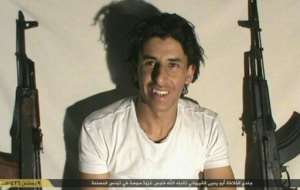
Tunis (AFP) - Tunisian Prime Minister Habibi Essid told CNN he believes the jihadist gunman who killed 38 people, mostly British tourists, in a savage beach attack was "mainly radicalised online".
In extracts of an exclusive interview with CNN published on the channel's website on Monday, Essid said the 23-year-old author of the worst jihadist attack in Tunisian history may have also received ideological training at a mosque.
"I think he was mainly radicalised online," Essid told CNN of the man identified as a university student named Seifeddine Rezgui.
The Islamic State group, which swiftly claimed responsibility for Friday's attack, has a huge online presence, using the most cutting-edge technology and social media strategies to attract fighters.
Disguised as a tourist on a beach near Sousse, south of Tunis, Rezgui pulled out a Kalashnikov assault rifle hidden inside a beach parasol and opened fire on holidaymakers.
Asked whether he believed Rezgui had become radicalised while he was at university, Essid replied: "We cannot establish (that) at this moment, but there is some information that he belonged to an organisation, and that he was very, very close to a mosque" that provided ideological training.
Essid also said it was unclear whether Rezgui ever travelled to neighbouring chaos-wracked Libya, a popular destination for militants who sign up to IS.
"The circulation between Tunisia and Libya could be done through irregular ways," he said in English, noting that Rezgui had never used his passport to travel.
Essid said the situation in Libya, which shares a long border with Tunisia, was having a negative impact on his country and urged the international community to help find a solution.
"People are trained (by jihadists in Libya) and people come back to Tunisia," he added.
Meanwhile, Essid vowed the Tunisian government's response to the attack would respect the country's laws and institutions.
"Things are completely different, what we did in 2011 is irreversible," he said, referring to the revolution that overthrew dictator Zine El Abidine ben Ali.




 Minority will expose the beneficial owners of SML, recover funds paid to company...
Minority will expose the beneficial owners of SML, recover funds paid to company...
 Prof. Opoku-Agyemang has ‘decapitated’ the NPP’s strategies; don’t take them ser...
Prof. Opoku-Agyemang has ‘decapitated’ the NPP’s strategies; don’t take them ser...
 Abubakar Tahiru: Ghanaian environmental activist sets world record by hugging 1,...
Abubakar Tahiru: Ghanaian environmental activist sets world record by hugging 1,...
 Prof. Naana Opoku-Agyemang will serve you with dignity, courage, and integrity a...
Prof. Naana Opoku-Agyemang will serve you with dignity, courage, and integrity a...
 Rectify salary anomalies to reduce tension and possible strike action in public ...
Rectify salary anomalies to reduce tension and possible strike action in public ...
 Stop all projects and fix ‘dumsor’ — Professor Charles Marfo to Akufo-Addo
Stop all projects and fix ‘dumsor’ — Professor Charles Marfo to Akufo-Addo
 Blue and white painted schools will attract dirt shortly – Kofi Asare
Blue and white painted schools will attract dirt shortly – Kofi Asare
 I endorse cost-sharing for free SHS, we should prioritise to know who can pay - ...
I endorse cost-sharing for free SHS, we should prioritise to know who can pay - ...
 See the four arsonists who petrol-bombed Labone-based CMG
See the four arsonists who petrol-bombed Labone-based CMG
 Mahama coming back because Akufo-Addo has failed, he hasn't performed more than ...
Mahama coming back because Akufo-Addo has failed, he hasn't performed more than ...
